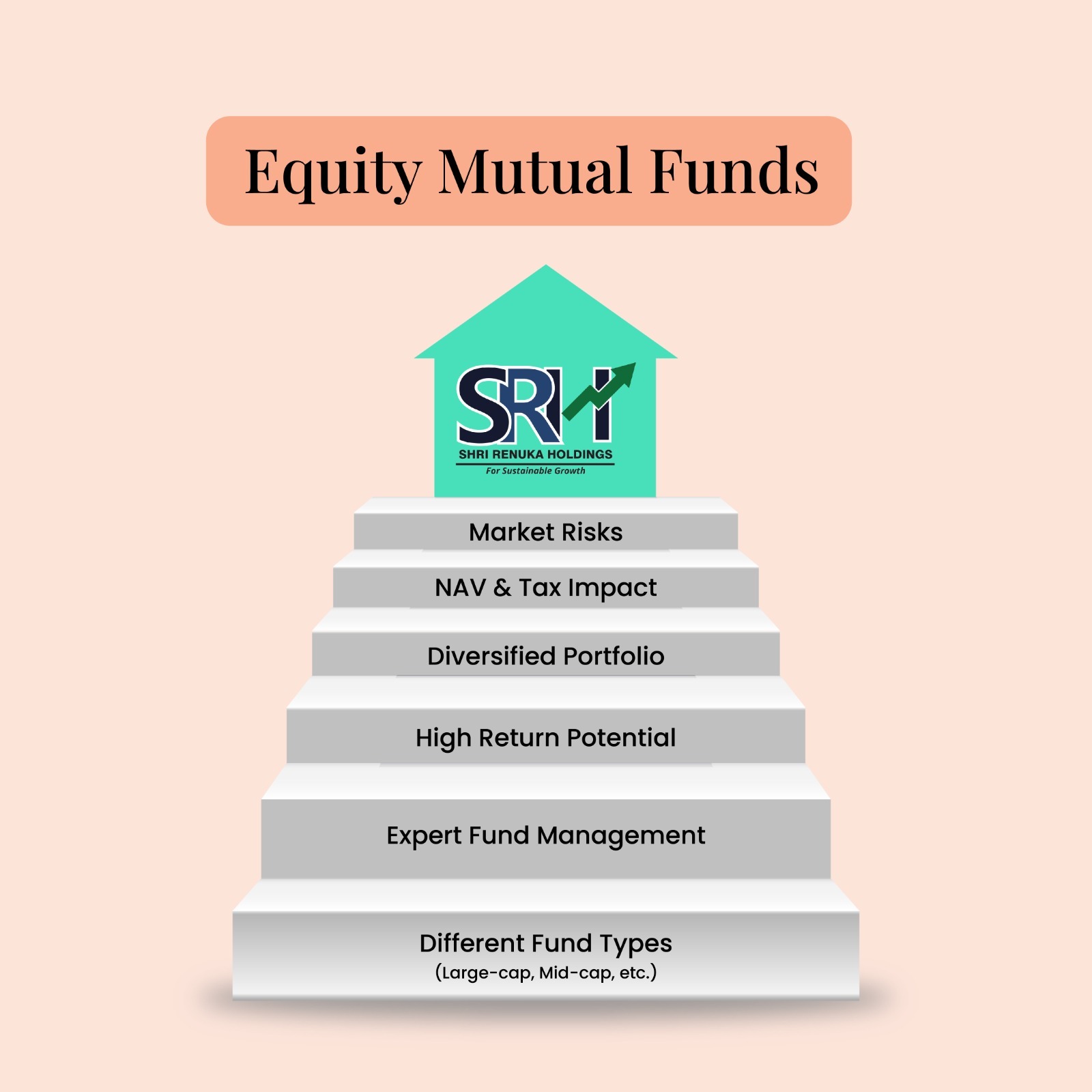- info@srhworld.com
- +91 (20) 24616106 | Helpline : +91 84849 14844
Basics of Equity Mutual Funds
Equity mutual funds are investment vehicles that invest in a diversified portfolio of equities and equity-related instruments with money pooled from multiple investors. These schemes are overseen by proficient fund managers, who invest in different instruments to accomplish the scheme’s investment targets. Here are a few considerations while investing in equity funds:
🔹 Objective
Equity mutual funds' primary objective is long-term capital appreciation. The value of the fund's units is directly proportional to the performance of the portfolio's underlying investments.
🔹 Diversification
These mutual funds have inherent diversification for the investors. The corpus is invested in different stocks across industries and sectors that mitigates the risk of investing in individual shares.🔹 Professional Management
Fund managers with extensive experience actively manage the schemes’ corpus. With the intention of maximizing investors' returns, they conduct research, examine market trends, and make investment decisions.
Different Types of Equity Mutual Funds
🔸 Large Cap Funds
Invest the pooled capital in established large companies🔸 Mid Cap Funds
Invest the pooled capital in mid-sized companies🔸 Small Cap Funds
Invest the pooled capital in small-sized companies🔸 Multi Cap Funds
Invest the pooled capital across small, mid, and large companies🔸 Sectoral Funds
Invest the pooled capital in specific sectors, such as banks, technology, healthcare, and othersRisks and Returns
Equity funds are riskier when compared to debt or hybrid funds as a significant amount of the corpus is invested in stocks and related products. However, over the long term, these funds potentially deliver higher returns in comparison to other types of mutual funds.
Net Asset Value (NAV)
The price of every unit held by equity mutual fund investors is known as the Net Asset Value. NAV is derived by dividing the total value of the fund corpus by the number of outstanding units.
Entry and Exit Load
Some mutual fund schemes might levy an exit load in the event that investors redeem their units within a predetermined period. Investors ought to likewise know about the expense ratio, which addresses the yearly charges and costs as a percentage of the fund's average value.
Tax Repercussions
Capital gains tax applies to gains from equity mutual funds. The tax rates depend on the holding period and the type of gains, which can either be short-term or long-term.
Market Risk
Market conditions, economic factors, and the stock market's overall performance all have an impact on the performance of equity mutual funds.
It is essential for investors to evaluate their risk tolerance, financial objectives, and investment time horizon prior to investing in equity mutual funds. It is recommended to seek guidance from professional experts if necessary to make an informed investment decision.





































